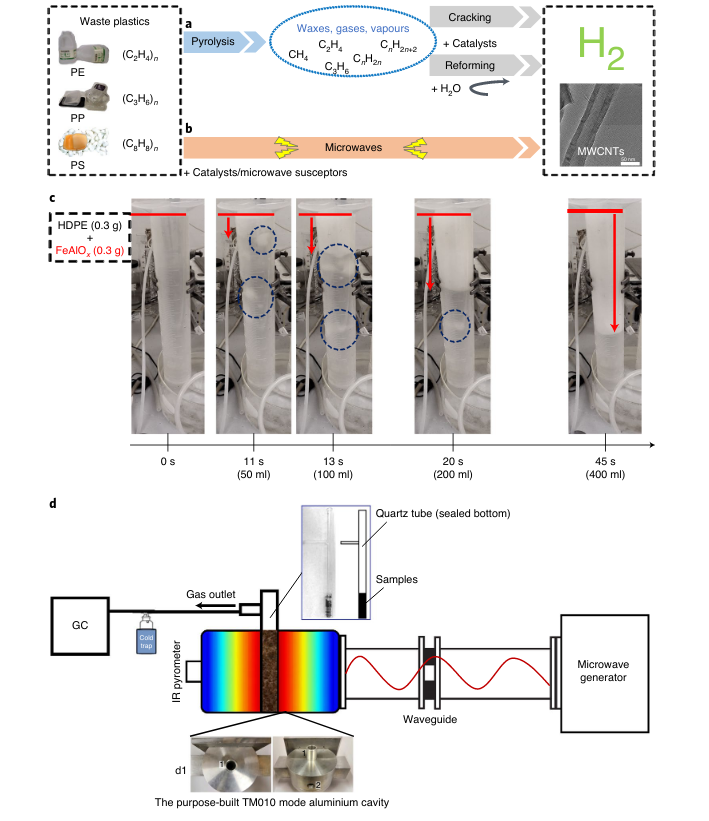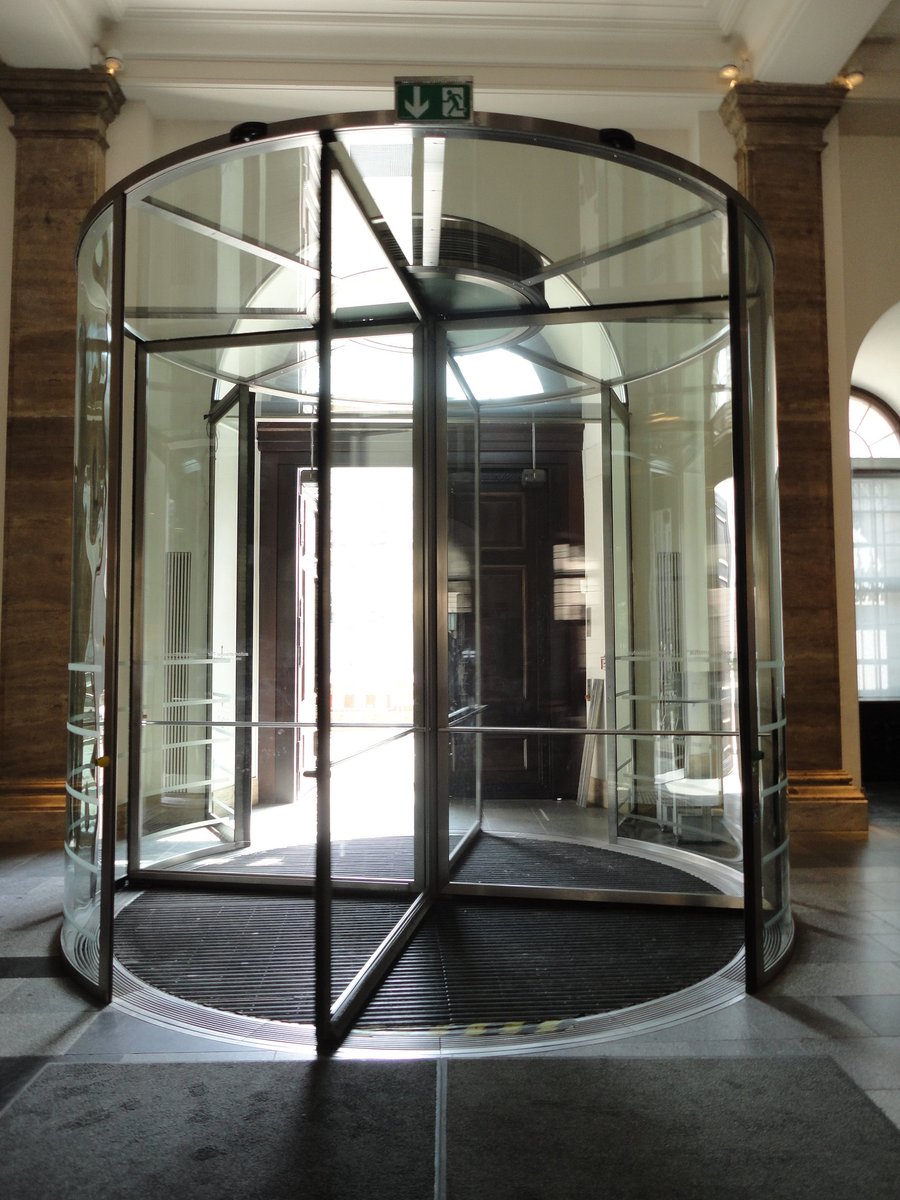
High-stakes tests are garbage, pedagogically bankrupt assessment tools that act as a form of empirical facewash for "meritocracy."
1/
1/

They primarily serve as a way for wealthy parents to buy good grades for their kids, since expensive test-prep services can turn even the dimmest, inbred plute into a genius-on-paper.
2/
2/
All of this was true before the pandemic. Now it's worse. Most of us meet the plague and ask, "How can I help my neighbor?" But for sociopaths, the question is, how can I turn a buck in a way that only stomps on the faces of poor people who don't get to hit back?
3/
3/
Maybe you hear that and think of the absolute garbage people who ran out and bought as much hand-san and bleach and TP as they could in the hopes of selling it at a markup.
nytimes.com/2020/03/14/tec…
4/
nytimes.com/2020/03/14/tec…
4/
But those petty grifters quickly disappeared in our rear-view mirrors. The real scum were the ones with long cons that hit whole swathes of victims.
Think, in other words, of the "remote invigilation" industry, whose products spy on kids during useless high-stakes tests.
5/
Think, in other words, of the "remote invigilation" industry, whose products spy on kids during useless high-stakes tests.
5/
These are tools that allow teachers to get a 360' view of students' surroundings (a special hardship for poor kids in close quarters) while relying on racially biased facial recognition systems and modern phrenology like facial expression analysis.
pluralistic.net/2020/08/09/jus…
6/
pluralistic.net/2020/08/09/jus…
6/
These are effectively rootkits: spyware you are required to install on your computer that grants remote parties sweeping access to your files and processes - especially hard on kids who share computers with siblings or precariously employed parents.
pluralistic.net/2020/04/15/inv…
7/
pluralistic.net/2020/04/15/inv…
7/
Unsurprisingly, people who make these tools are unsavory, immoral bullies.
Take Mike Olsen, CEO of @proctorio, who dumped dox on a child who criticized his company in a Reddit forum:
pluralistic.net/2020/07/01/bos…
(Proctorio told the Guardian they "take privacy very seriously")
8/
Take Mike Olsen, CEO of @proctorio, who dumped dox on a child who criticized his company in a Reddit forum:
pluralistic.net/2020/07/01/bos…
(Proctorio told the Guardian they "take privacy very seriously")
8/
Educators aren't any happier about Proctorio than their students are. @Linkletter is a Learning Technology Specialist at @UBC's Faculty of Education.
9/
9/
He was so aghast at Proctorio's sweeping surveillance capabilities that he tweeted links to the company's Youtube videos documenting them. These videos were public, but unlisted.
10/
10/
In response, Proctorio SUED LINKLETTER, getting an injunction in an ex parte court proceeding that LInkletter was not informed of.
Proctorio claims that LINKING TO ITS PUBLIC VIDEOS constitutes a copyright infringement and a breach of confidentiality.
11/
Proctorio claims that LINKING TO ITS PUBLIC VIDEOS constitutes a copyright infringement and a breach of confidentiality.
11/
This is bullshit, but Linkletter is an employee at a public university while Proctorio is a ruthless profiteer that has raised millions in the capital markets to peddle surveillance tools:
pitchbook.com/profiles/compa…
12/
pitchbook.com/profiles/compa…
12/
Thankfully, British Columbia has strong SLAPP protections that allow people victimized by nuisance suits brought by deep-pocketed, thin-skinned jerks to get them expeditiously dismissed.
13/
13/
Linkletter's colleagues are standing behind him, and he's being represented by Joseph Arvay of @UBPGL. Arvay's SLAPP motion to the BC Supreme Court is a thing of beauty:
drive.google.com/drive/folders/…
14/



drive.google.com/drive/folders/…
14/
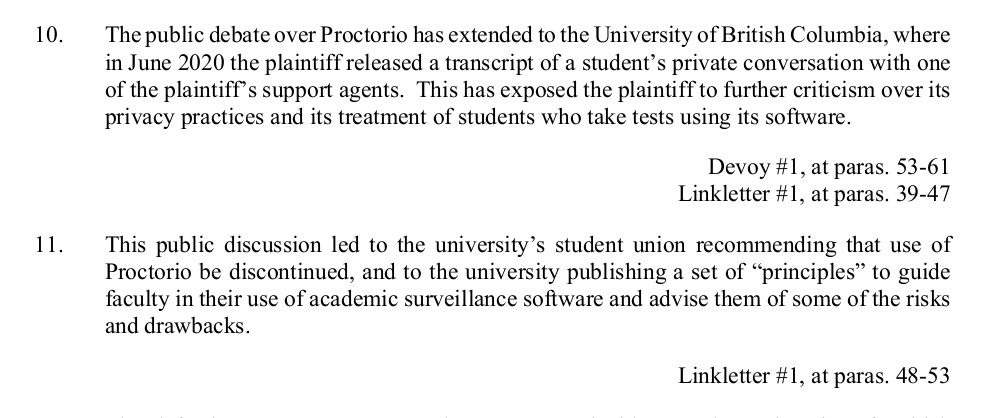
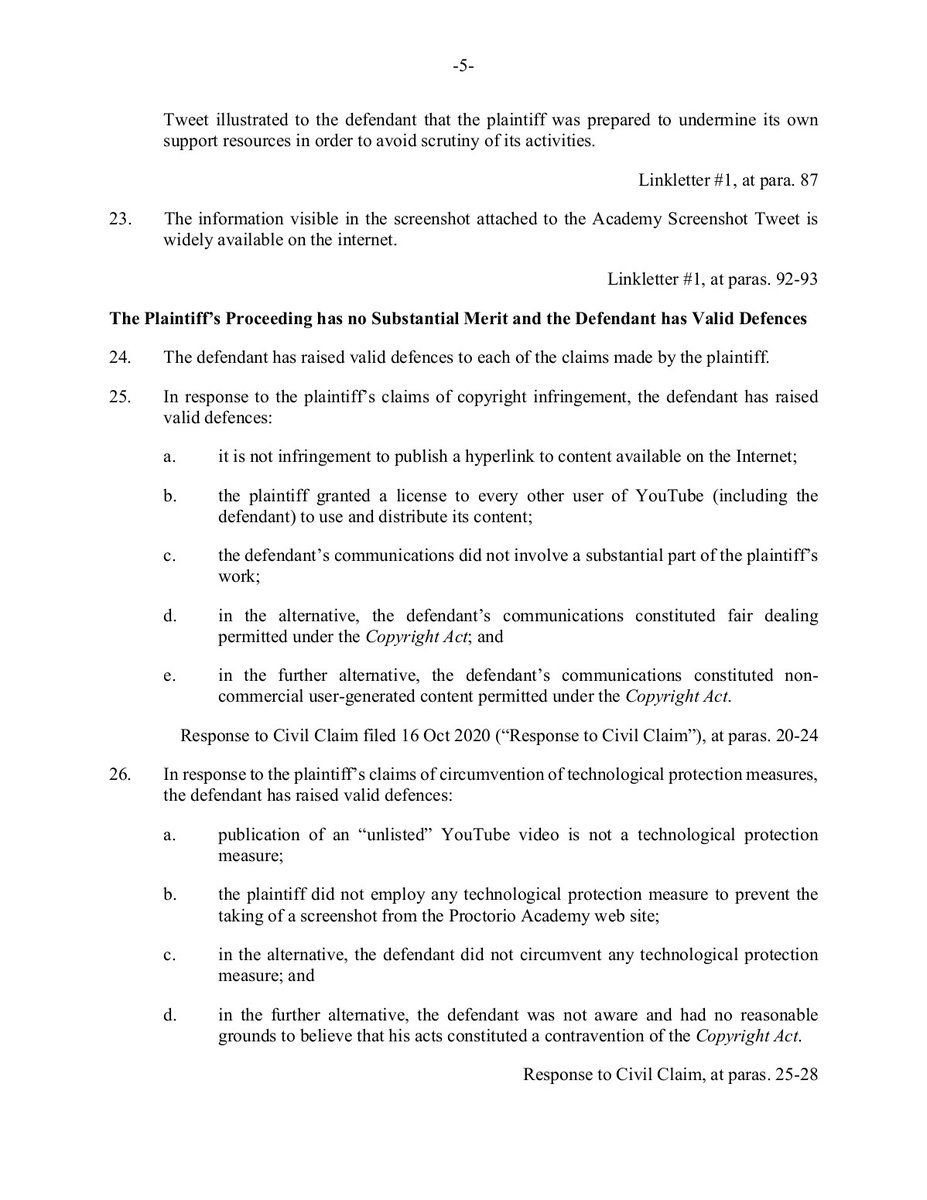
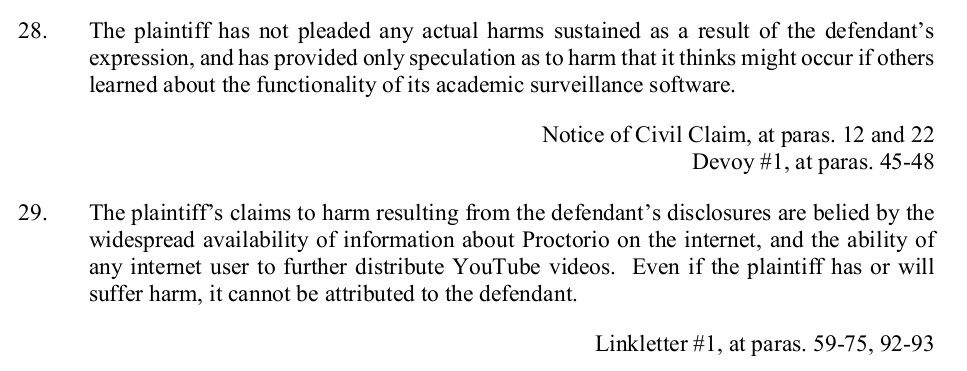

Legal threats from wealthy, ruthless corporate bullies are incredibly stressful, even if you win. Trust me, I speak from experience (ohai, @birdride, @magicjack, @playboy and @RalphLauren!). And even with SLAPP laws and liability insurance, the out-of-pockets are severe.
15/
15/
That's why I'm contributing $100 to Linkletter's Gofundme for his legal fees, which have mounted to tens of thousands of dollars.
gofundme.com/f/stand-agains…
16/
gofundme.com/f/stand-agains…
16/
Linkletter can't really talk about the case, thanks to Proctorio's sneakily obtained injunction. That means that it's incumbent on US, the people who care about justice for students and whistleblowers, to spread the word.
17/
17/
Please consider retweeting this and also investigating whether any of the educational institutions you or your children are involved with use Proctorio's products and point them at this lawsuit.
18/
18/
Any ed-tech firm that answers academic criticism with lawsuits has permanently disqualified itself from being entrusted with learners' educations. When someone tells you who they are, believe them.
Cryteria (modified)
commons.wikimedia.org/wiki/File:HAL9…
CC BY:
creativecommons.org/licenses/by/3.…
eof/
Cryteria (modified)
commons.wikimedia.org/wiki/File:HAL9…
CC BY:
creativecommons.org/licenses/by/3.…
eof/
• • •
Missing some Tweet in this thread? You can try to
force a refresh

